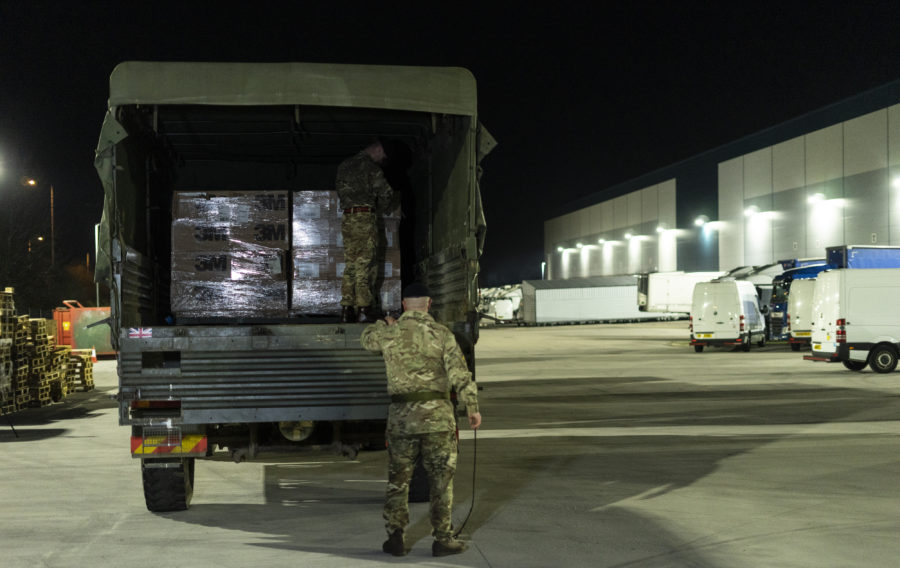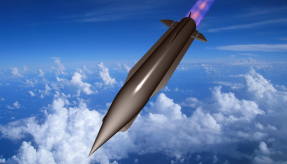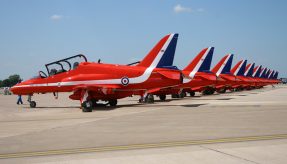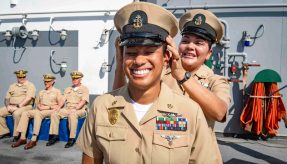
As the coronavirus continues its grip on our everyday way of life and threatening the most vulnerable members of society, the Ministry of Defence (MOD) is playing a crucial role in supporting public services in response to the pandemic.
On 18 March, the Defence Secretary, Ben Wallace, announced new measures to put service personnel and Reservists on standby to support public services in the fight against the coronavirus outbreak.
The MOD placed an additional 10,000 military personnel at a higher readiness and Reserves on stand by to support public services as part of a new ‘COVID Support Force’.
This was done as part of contingency planning to allow the MOD to respond to any request from other governments departments or civil authorities for support.
As of 23 March, there are 250 personnel deployed to assist civil authorities with the response. They are part of 20,000 armed forces personnel currently stood at readiness to take part.
The armed forces have contributed dozens of specialist military planners to Local Resilience Forums who are providing support to public services, local authorities and emergency services in preparing their response to the coronavirus outbreak.
As part of efforts to support the NHS, Monday 23 March saw armed forces personnel began training to drive oxygen tankers in support of the NHS. Around 150 members of personnel from all three services will be trained to drive supplies of oxygen to NHS facilities if required.
Another crucial aspect of this support will be delivering personal protective equipment (PPE). Fifty members of armed forces personnel have begun assisting the NHS with the distribution and delivery of PPE. The number of personnel is likely to be increased to 250 when the programme is running at full capacity.
A small team of military planners also visited the ExCeL centre with staff from NHS England to determine if the armed forces could support the NHS response to the outbreak. At the time of writing, no final decisions had been taken, but their work continues.
The MOD have also reacted by serving to protect communities. On Sunday 22 March, an RAF A400M transport aircraft responded to a request to transfer a critically-ill COVID-positive patient from hospital in the Shetland Islands to an intensive care unit in Aberdeen.
The male patient, in his 60s, was in a deteriorating condition and needed urgently to be evacuated. Before returning to its home base at RAF Brize Norton, the aircraft was cleaned to prevent any further potential spread of the virus.
Forces from Joint Helicopter Command are another facet of the military’s response to the COVID019 crisis and are on standby to provide aviation capability in support to civil authorities. This will enable access to isolated communities that may not be able to obtain urgent medical care during the coronavirus crisis.
The Support Helicopter Force, Army Air Corps and Commando Helicopter Force will provide helicopters and personnel from all three services to respond as required.
Given the global escalation of the coronavirus, repatriating British citizens has been another vital function in the MOD’s support efforts. So far, the military have assisted with repatriation flights from China and Japan. This included providing medically-trained members of service personnel and a military runway for aircraft to land in the United Kingdom. The repatriation flights allowed British citizens to return home safely and receive the medical treatment they needed.
image © Crown Copyright
If you would like to join our community and read more articles like this then please click here.
All information provided in this article is given in good faith. However, to the extent that any actions taken in relation to matters concerning procurement, the above article does not constitute legal advice to you. The contents of these articles are not to be construed as legal advice or a substitute for such advice, which you should obtain from your own legal advisors if required. We are not and shall not be held responsible for anything done or not done by you as a result of the information provided.







